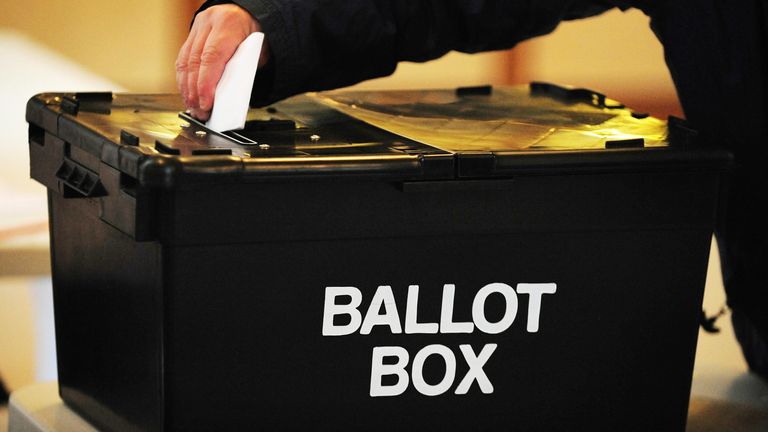Election results declared overnight have clearly demonstrated that the Conservatives are in serious trouble.
There was a by-election defeat in Blackpool South at the hands of Labour, the seventh this parliament.
In the local council elections, the Conservatives are losing seats in numbers that suggest this could be one of the party’s worst-ever performances.
But Conservative council seat losses have not been to Labour’s gain overall – with Sir Keir Starmer’s party more or less static in terms of vote share compared with its results from last year’s May elections.
Follow local elections live: Results as they come in
The picture of net seat gains and losses is intriguing.
Labour leads the way but it is having to share the headlines with seat gains made at the Conservatives’ expense by the Liberal Democrats, Greens and a range of local independents.
Close comparisons of change in vote share demonstrate that support for Reform is real and will hurt the Conservatives if played out at the next general election.
The early results from Sunderland, where Reform fielded candidates in all 25 wards, demonstrate this. The decline in the Conservative share was almost a mirror image of the increase for Reform.
The Conservatives must be thankful that Reform is only contesting around 300 of the more than 2,500 seats being contested.
In Newcastle, it was a different story where Reform did not field candidates.
Here, Labour lost two seats, the Greens gained two and there was a rare Conservative gain. In terms of the changing share of the vote, it was the Greens that were making progress.
But strong evidence that Labour’s progress was patchy came in South Tyneside where Labour’s 22-seat council majority was slashed to just two seats when 10 seats were lost to the Independents Group and the Greens.
A long-running confrontation between the council administration and refuse workers is a combination that rarely comes out in favour of the party in power.
Another example of this is Thurrock – where a previous Conservative administration presided over circumstances that led the council to declare its effective bankruptcy.
Given the chance to vent their spleen, voters wreaked havoc on the Conservatives who lost all but one of the 13 seats they were defending. Labour gained eight seats and returned to power after an eleven-year absence.
The first parliamentary by-election following the 2019 general election produced a surprise win for the Conservatives in Hartlepool, a rare seat gain from the party of opposition. That election took place on the same day as the 2021 council elections which saw the Conservatives win a majority of seats on Hartlepool council.
This time the electoral pendulum swung in the opposite direction with the Conservatives losing seats and Labour regaining council control in Hartlepool.
Read more: Boris Johnson turned away from polling station
Having easily retained control of Broxbourne, a council the Conservatives have held for its 51-year existence, the Tories lost control of North East Lincolnshire where its 12-seat majority fell – after it lost six seats to Labour and a further two to the independents.
The area, which includes the new Grimsby and Cleethorpes constituency where it is estimated the Conservatives are defending a 23-point majority, may well result in a close finish.
Rushmoor in Hampshire provided the bigger shock, the first Labour gain from Conservative of the night.
This is the first time Labour has won majority control since the council was established in the early 1970s.
Not even Tony Blair’s New Labour ever achieved that feat.
Mr Starmer will surely use this result to claim that his party is a fighting force in areas of southern England.
In the West Midlands, Redditch was another direct switch from Conservative to Labour.
Labour were not far behind the ruling Conservatives before the election but boundary changes and a whole council election provided the opportunity Labour needed. It gained 10 seats and now has a 15-seat majority.
But, Labour knows that in some places Conservative woe does not read directly across to Labour gain.
In Peterborough, 13 Conservative losses were shared among independents and to a lesser extent Labour, the Liberal Democrats and Greens.
It also knows that it still faces challenges in building a general election-winning performance.
In Harlow – the 33 seats split 17 for the Conservatives and 16 for Labour – with the Conservatives losing seats but holding the council majority.
Understandably, Labour is using the Blackpool South result to talk up its general election prospects – but the story from the local elections declared thus far point to a more nuanced story.




